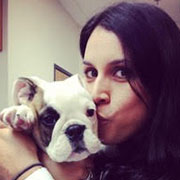MASTER OF PUBLIC HEALTH (MPH)
PROGRAM OUTLINE
Term 1 |
||
| PUBH 803 | Principles of Epidemiology | 3 cr. |
| PUBH 804 | Principles of Biostatistics | 3 cr. |
| PUBH 805 | Health Policy and Management | 3 cr. |
| PUBH 807 | Principles of Environmental Health | 3 cr. |
| PUBH 831 | Concepts, Practice, and Leadership of Public Health | 3 cr. |
Term 2 |
||
| PUBH 806 | Social and Behavioral Aspects of Public Health | 3 cr. |
| PUBH 832 | Public Health Research Methods and Ethics | 3 cr. |
| PUBH 858 | One Health: Public Health Applications | 3 cr. |
| Track-Specific Course | 3 cr. | |
| Track-Specific Course | 3 cr. | |
Term 3 |
||
| PUBH 889 | Practicum in Public Health | 3 cr. |
| PUBH 893 | Capstone Integrative Learning Experience (CILE) | 3 cr. |
| Track-Specific Course | 3 cr. | |
| Track-Specific Course | 3 cr. | |
Freestanding/ Standalone Track Specializations.
Students in the public health degree programs are offered the option of specializing or concentrating in one of four tracks. Each track has its own unique coursework requirements.
In addition to the public health core (15 credits) and program required (6 credits) courses, students in the Epidemiology Track are required to complete the following four track required-courses:
| Epidemiology Courses (12 credits) | ||
| PUBH 813 | Chronic Disease Epidemiology | 3 credits |
| PUBH 835 | Practical Data Management and Analysis | 3 credits |
| PUBH 842 | Intermediate Epidemiology | 3 credits |
| PUBH 843 | Infectious Disease Epidemiology | 3 credits |
| PUBH 849 | Toxic Exposures and Public Health | 3 credits |
Based on these Epidemiology track courses, students will gain the following competencies:
- Construct a public health surveillance system to identify outbreaks and important health indicators utilizing credible evidence.
- Formulate and test hypotheses by examining empirical evidence.
- Design intervention strategies to promote public health practice.
- Demonstrate how an epidemiologic approach provides inference on causes and correlations of diseases.
- Determine the most appropriate epidemiologic study design to investigate different hypotheses.
- Analyze empirical data from an experimental study.
- Interpret empirical data from an observational study.


